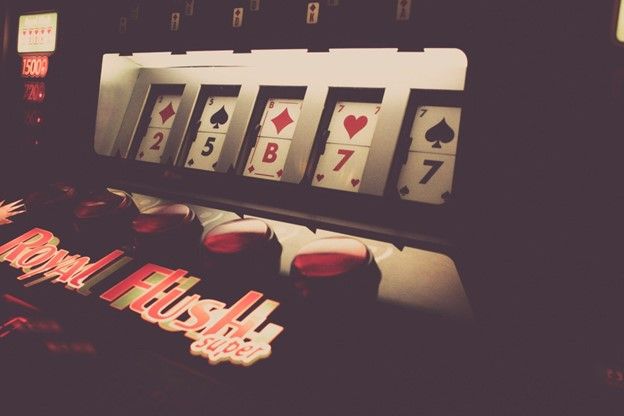Slot Games: History, Popularity, and Everything You Need to Know

When people think of casino games, the slot is often the first image that comes to mind. Bright lights, spinning reels, and the thrill of waiting for the right combination to land have made slots the most iconic form of gambling entertainment. Whether you’re at a land-based casino in Las Vegas or exploring online platforms, slots are everywhere—and they remain the top choice for millions of players worldwide.
The Origins of the Slot Machine
The story of the slot begins in the late 1800s. Charles Fey, a San Francisco mechanic, invented the Liberty Bell machine in 1895. This mechanical device had three reels and five simple symbols: horseshoes, diamonds, spades, hearts, and the Liberty Bell. Landing three bells in a row earned the highest payout.
The Liberty Bell became incredibly popular and inspired countless imitators. Early slots were mechanical, using levers and gears, which is why they were often called “one-armed bandits.” These machines were easy to play, and players were hooked by the possibility of winning cash with just a single spin.
Over time, slot machines evolved into electromechanical and video-based versions, eventually becoming the sophisticated digital games we see today.
How Slot Games Work
Although they appear simple on the surface, modern slots are powered by advanced technology. Every slot game operates on a Random Number Generator (RNG), which ensures that each spin is completely random and independent from the last.
Key components of a slot include:
- Reels: Vertical columns that spin and display symbols.
- Symbols: Graphics that land on reels, such as fruits, numbers, or themed icons.
- Paylines: The patterns that determine winning combinations. Older slots had just one payline, while modern games may feature hundreds.
- RTP (Return to Player): A percentage that indicates how much of the total bets a slot will theoretically pay back over time.
- Volatility: This refers to risk level—low volatility slots give smaller but frequent wins, while high volatility slots offer bigger but rarer payouts.
By combining these elements, slot games create endless possibilities for outcomes, keeping players engaged and entertained.
Types of Slot Games
One reason the slot is so popular is the sheer variety available. Here are the main categories:
1. Classic Slots
Inspired by the Liberty Bell, classic slots usually feature 3 reels, simple gameplay, and symbols like fruits, bars, and sevens. They’re perfect for players who prefer a straightforward experience.
2. Video Slots
These are the most common in online casinos. They often have 5 reels, stunning graphics, animations, and bonus features such as free spins or wild symbols.
3. Progressive Jackpot Slots
These slots feature jackpots that grow with every bet placed across the network. Progressive jackpots can reach millions, with famous examples like Mega Moolah turning ordinary players into millionaires overnight.
4. Branded Slots
Many developers create slots based on movies, TV shows, or celebrities. Games like Jurassic Park or Game of Thrones attract fans with familiar themes.
5. Megaways Slots
An innovative format where the number of symbols per reel changes with each spin, offering thousands of potential winning combinations.
Why Slot Games Are So Popular
The slot remains the king of casino floors and online platforms for several reasons:
- Easy to Play: No special skills are required—just spin and wait.
- Exciting Themes: From mythology to movies, slots cover every theme imaginable.
- Fast-Paced Action: Each spin takes only seconds, keeping the adrenaline high.
- Potential for Big Wins: With progressive jackpots and multipliers, the chance to win big is always there.
- Accessibility: Slots are available everywhere—land-based casinos, mobile apps, and websites.
Common Myths About Slot Games
Because slots are so popular, they’ve attracted many myths. Let’s set the record straight:
- “This slot is due for a win.”
False. Every spin is independent, and past results don’t affect future outcomes. - “Betting higher increases your chances.”
Not true. While higher bets may increase payouts, they don’t change the odds of winning. - “Online slots are rigged.”
Licensed online casinos are regulated and audited. RNGs ensure fair play.
Tips for Playing Slots Responsibly
Even though slots are mostly luck-based, you can maximize enjoyment with a few smart tips:
- Set a Budget: Decide how much you’re willing to lose before playing.
- Pick High RTP Games: Slots with RTPs above 95% are generally more favorable.
- Use Bonuses: Take advantage of casino promotions like free spins.
- Play for Fun: Remember that slots are entertainment, not a guaranteed way to earn money.
The Future of Slot Games
The world of slot gaming continues to evolve with technology. Online platforms now integrate:
- Virtual Reality (VR): Allowing players to step inside immersive casinos.
- Blockchain Technology: Some casinos now accept cryptocurrency wagers for secure and fast transactions.
- AI Personalization: Games can recommend slots tailored to individual preferences.
- Mobile Gaming: Players can spin the reels anytime, anywhere with mobile-friendly slots.
The combination of cutting-edge graphics, innovative features, and the potential for huge payouts ensures that slot games will remain popular for decades to come.
Conclusion
From the mechanical Liberty Bell of 1895 to today’s high-tech digital platforms, the slot has undergone an incredible transformation. What hasn’t changed is its universal appeal: simple gameplay, exciting themes, and the chance to win. Whether you prefer classic fruit machines or modern video slots with cinematic graphics, there’s something for everyone.
As technology advances, slots will only become more interactive and entertaining, ensuring they remain at the heart of the global gambling industry. So the next time you spin the reels, remember—you’re taking part in a tradition that has been thrilling players for over a century.



